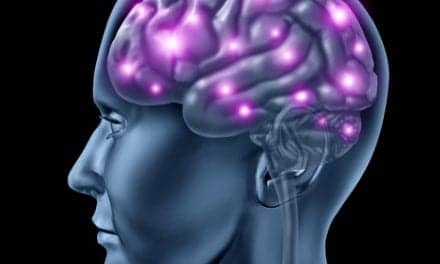A team of researchers suggests that chronic exposure to arsenic could lead to stem cell dysfunction, which impairs the muscles’ ability to heal and regenerate after an injury.
However, the team notes in their study, published recently in the journal STEM CELLS, inhibiting a protein called NF kappa B may reverse these effects, according to a media release from University of Pittsburgh Schools of the Health Sciences.
More than 140 million people worldwide and 4 million people in the United States chronically ingest arsenic in their drinking water, according to the study’s senior investigator Fabrisia Ambrosio, PhD, MPT, in the release.
“We wanted to see if environmentally relevant levels of arsenic impair the ability of skeletal muscle to properly repair after injury, and we found out that it does,” adds Ambrosio, also an assistant professor of physical medicine and rehabilitation at Pitt and the McGowan Institute for Regenerative Medicine, in the release.
In their study, the research team had mice drink water for 5 weeks, or about 2 human years, with the equivalent of 10 times the arsenic level considered safe for humans by federal standards. Similar levels are seen in about 8% to 10% of wells, according to co-investigator Aaron Barchowsky, PhD, professor of environmental and occupational health at Pitt Public Health, in the release.
Then, the researchers injured the muscle in the exposed mice. After comparing the outcome to those of mice that weren’t exposed to arsenic, they found a significant decrease in the ability of the muscle in arsenic-exposed mice to regenerate after the injury, and a consequent impairment of muscle function.
They then examined muscle tissue after taking away all the cells, leaving only what’s called the extracellular matrix, and found it had abnormally remodeled producing structural deficits, the release explains.
The researchers seeded the arsenic-exposed extracellular matrix with human muscle stem cells to see if healthy muscle would reform.
“We found that this pathogenic matrix impaired the ability of our stem cells to form new muscle fibers,” Ambrosio says in the release. “This may contribute to an impaired healing response after injury.”
They learned that arsenic caused heightened biochemical signals from a protein complex called NF kappa B, which is involved in matrix remodeling and tissue repair.
“A striking finding is that if we blocked the activation of the NF kappa B program, we saw the arsenic-exposed muscle recovered just fine,” Barchowsky states in the release.
Barchowsky adds that in further research, he would like to explore whether arsenic’s impact on a person who had been chronically exposed to it could be reversed.
[Source(s): University of Pittsburgh Schools of the Health Sciences, Science Daily]





